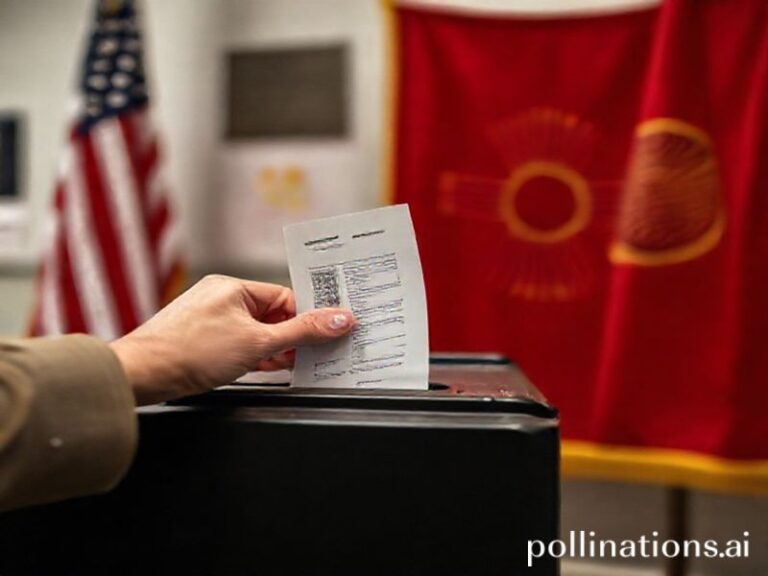ITV News: How Britain’s Stiff-Upper-Lip Bulletin Accidentally Became the World’s Comfort Blanket
ITV News: Britain’s Polite Little Earthquake in the Global Echo Chamber
By Our Correspondent, Nursing a Third Espresso in a Time Zone That No Longer Cares
LONDON—Somewhere between the croissants of Paris and the kimchi of Seoul, the planet’s media diet has become a bland, algorithmic gruel. Enter ITV News, the UK’s last broadcast bulletin that still employs actual humans to ask follow-up questions instead of merely gasping at their own reflection in the teleprompter. On paper, it’s a regional outfit—three nightly bulletins, a website that occasionally remembers the rest of the world exists, and a YouTube channel whose comment section is 70 percent Brexit therapy. Yet in an era when “breaking news” usually means a celebrity stubbed a toe, ITV’s stubborn insistence on foreign bureaus and—brace yourself—complete sentences has turned it into an unlikely carrier wave of British neuroses for the rest of us.
Take Tuesday’s lead: a two-minute package from Kyiv that somehow squeezed in trench warfare, wheat futures, and the price of oat milk in Kensington. The juxtaposition was so aggressively British it could have worn a cagoule in July. Still, the report ping-ponged from a Ukrainian artillery captain to a City analyst to a Sussex mother wondering if her sourdough starter will survive the winter. For viewers in Lagos or Lima, it was a masterclass in imperial nostalgia wrapped in polite panic—like watching someone apologize while accidentally recolonizing your attention span.
Global ripple effects? Consider the numbers. ITV News’s YouTube clips routinely outperform BBC World in Southeast Asia, not because Brits abroad are homesick, but because the bulletin’s tone—measured outrage delivered in Received Pronunciation—has become comfort food for anyone exhausted by shouty cable anchors or the perpetual amphetamine scream of social media. In Jakarta, a university lecturer told me she plays the 6:30 bulletin at 2 a.m. local time “to remember what calm sounds like.” Translation: the empire’s stiff upper lip is now a sleep aid in the Global South. History really does have a sense of humor.
Meanwhile, the network’s editorial decisions ripple through markets faster than a Liz Truss budget. When ITV led with Sri Lanka’s fuel crisis last summer, the pound ticked down 0.3 percent—not because traders suddenly care about Colombo’s diesel queues, but because they recognized the music: Britain projecting its own inflationary dread onto palm-fringed disasters. The bulletin didn’t mention the UK once in the segment, yet the subtext screamed, “Look, it could be us next week.” By morning, hedge funds were shorting Ocado and long on tinned beans. If soft power were a cryptocurrency, ITV would be the stable-coin of anxiety.
Of course, the operation is not without its charming hypocrisies. The same bulletin that lectures on carbon emissions cuts to an ad break flogging SUVs the size of Guernsey. Anchors furrow their brows over Qatar’s labor rights, then toss to a travel segment on “affordable winter sun” in—wait for it—Doha. Somewhere, irony just choked on its own avocado toast.
Yet the broader significance is stark: in a media landscape atomized by TikTok trends and autocratic disinformation, ITV News remains a stubbornly linear campfire. Foreign correspondents still file from dusty border towns; editors still argue over whether to spend 90 seconds on Burkina Faso or Beyoncé (spoiler: Burkina Faso loses). The result is a nightly reminder that the world is larger than your doom-scroll, even if the world is, well, doomed.
So raise a lukewarm cup of tea to this relic in a tie. ITV News may never trend, but it trends adjacent to reality—a small, weather-predicting canary in the coal mine of late-stage capitalism. And if the canary is British, it will, of course, apologize before it drops dead.







